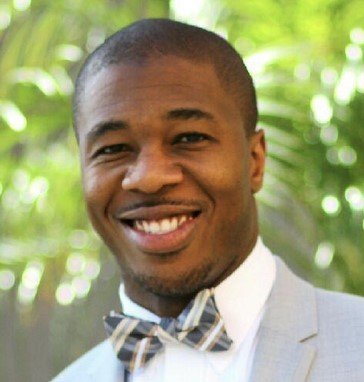Chadwick Boseman attends the 47th AFI Life Achievement Award honoring Denzel Washington at Dolby Theatre on June 06, 2019 in Hollywood, California. (Photo by Rich Fury/Getty Images)
by Mekka Don, co-host of The Pilot Boys Podcast, artist/entrepreneur/lawyer
As news of Chadwick Boseman’s passing sent ripples through my family, I was particularly struck by the intense sadness of my four nephews and two nieces (ages 15 and under) who viewed Boseman, the Black Panther, as more than a superhero. They saw Boseman as a real life representation of what Black excellence can be.
Wakanda was almost a mirror in which the children in my family could see both the pride of our Afro-Caribbean heritage and the beauty of our African-American reality — both worlds, both truths, both identities showing up in this iconic world, led by this iconic figure. Therefore, Chadwick Boseman, the Black Panther, was not an action figure to be played with and discarded. He was the epitome of a new truth.
Wakanda was almost a mirror in which the children in my family could see both the pride of our Afro-Caribbean heritage and the beauty of our African-American reality
“Why did he die? How did he die?” Our nieces and nephews asked those two questions to me and my siblings constantly, as superheroes in their minds are not supposed to die. There were no good answers then, and there are no good answers now, but it did eventually force us to focus on the disease that Boseman fought for years—colorectal cancer, a deadly killer in so many Americans, including, increasingly, young Americans.
Recently, we dedicated an episode of our podcast,
The Pilot Boys
, to examine the disease in the wake of Boseman’s death. We interviewed Dr. Darrell Gray, associate professor and nationally renowned gastroenterologist at the Ohio State University College of Medicine and deputy director for the Center for Cancer Health Equity at the James Cancer Hospital.
Dr. Gray shared that colorectal cancer leads to disturbing death rates, especially when diagnosed late, and that there are well established disparities in African-Americans, who tend to experience more severe and later stage diagnoses. He highlighted Boseman’s death as a call to action to raise awareness in communities of color. However, Dr. Gray also emphasized the importance of good health and exercise, regular screenings, health education and building relationships with medical providers in reducing these disparities, improving diagnosis and prevention.
Unfortunately, even with all of this, Chadwick Boseman was unable to win this four-year battle, and to me, as a Black man, that was all the more reason to personally take good health and screenings seriously.
[embed]https://twitter.com/pilotboyspod/status/1301871280057200640[/embed]
Being the father of one and uncle and mentor to many, Chadwick Boseman’s death has given me renewed perspective on life and my role as an example to others. I have realized that the next generation of my family is watching my every move and drawing conclusions for what my success (or failure) means in their lives. They will scrutinize and observe my decisions and health behaviors. I must model what I want them to see. Which brings me right back to Chadwick Boseman, our Black Panther, the ruler of Wakanda.
He was Black. He was strong. He was vigilant. He was a visible manifestation of the glory of their roots.
The next generation of children in my family watched his every move and, despite the ills of society that they’ve sadly already been exposed to by virtue of their race, he was a symbol of hope for the young girls and the boys in my family. He was a symbol of what can be. A symbol of Black excellence and pride. He was the adult version of them — of what they aim to see when they look into the mirror. He was Black. He was strong. He was vigilant. He was a visible manifestation of the glory of their roots.
Though he has physically passed away from this Earth, I remind my nephews and nieces that he may be gone but not forgotten. His passing has inspired generations both young and old to get screened for a deadly cancer, and that the pride that Chadwick Boseman, the Black Panther, instilled in them is not in any way diminished. And what could be more super and heroic than one who makes a mark and whose example lives on after death? He was and is, indeed, more than a superhero.
Chukwuemeka Onyejekwe (aka Mekka Don) is the CEO of Mekka Don Enterprises, an international entertainment consulting firm. He is also an attorney, entrepreneur, entertainer, and co-host of the acclaimed Pilot Boys podcast, named one of the fastest growing podcasts in the Midwest in 2020. He was recently named Co-Chair of the Public Relations Subcommittee of the Big Ten’s Anti-Hate and Anti-Racism Coalition.
Follow us
:
Subscribe
:
If you would like to contribute to Educator Voice, please send your idea to Victoria Pasquantonio at vpasquantonio@newshour.org.




